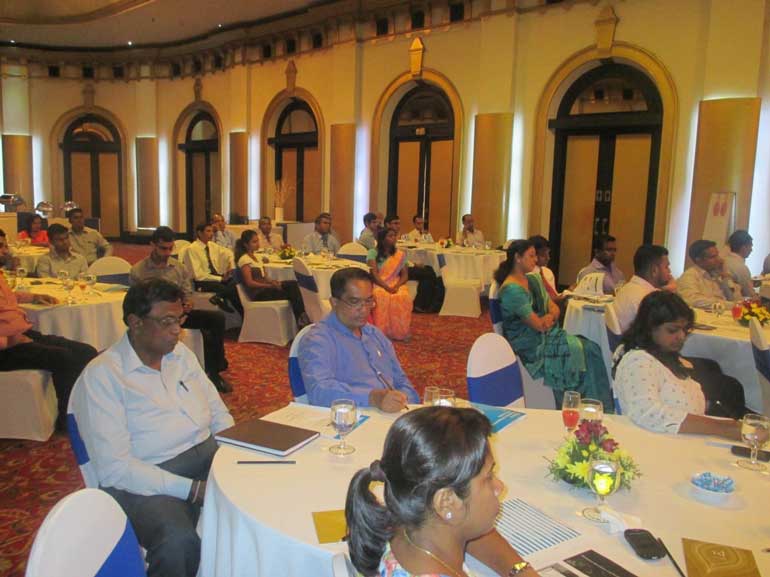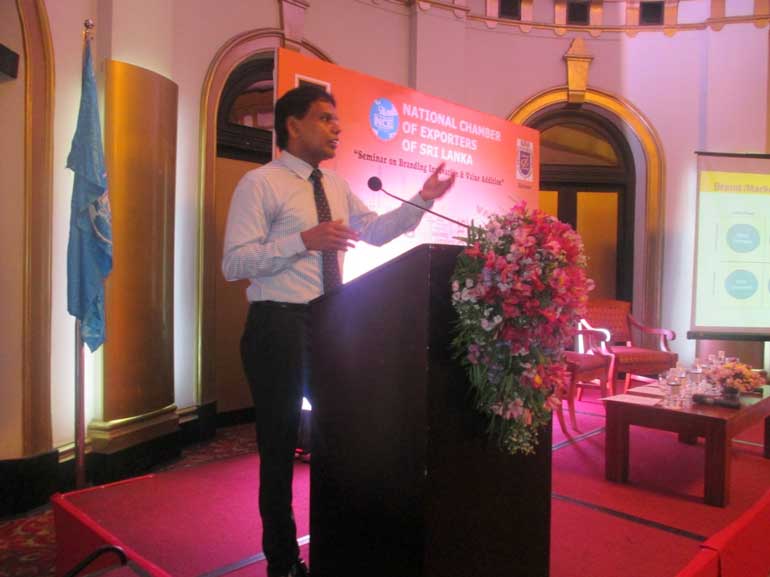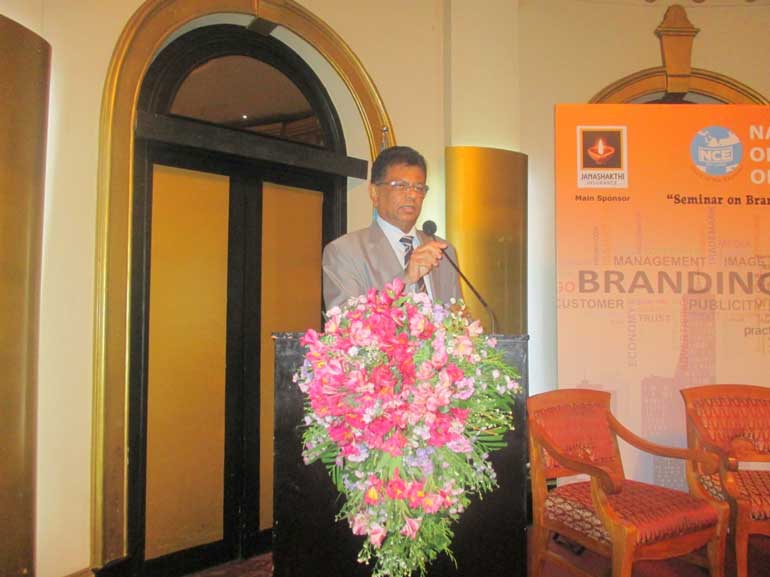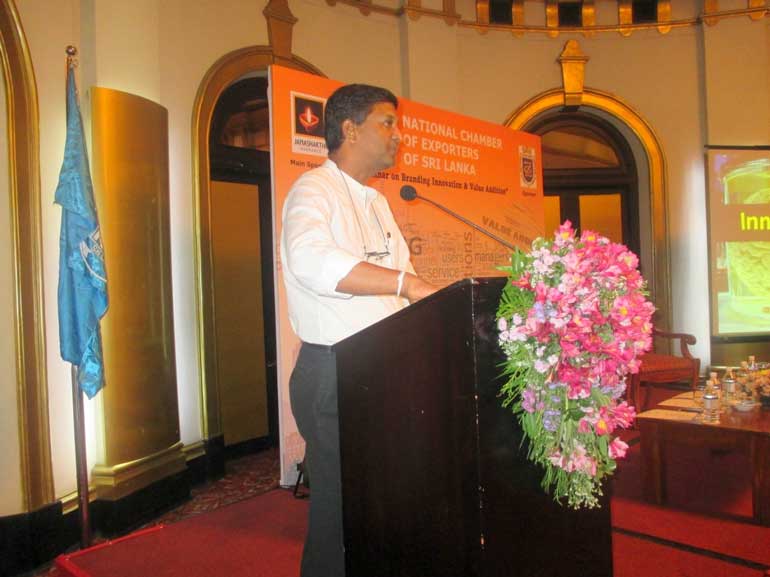Tuesday Feb 24, 2026
Tuesday Feb 24, 2026
Monday, 22 June 2015 00:00 - - {{hitsCtrl.values.hits}}

A section of the audience

Maliban Biscuit Manufactories CEO Sales and Marketing Ravi Jayawardena

University of Uva Wellassa founder Vice Chancellor Dr. Chandra Embuldeniya

COSTI Project Director Prof. Ajith De Alwis
The NCE conducted an awareness seminar on value addition, branding, innovation for exporters and prospective exporters on 12 June at the Hotel Taj Samudra. The importance of the subject of the seminar to promote and accelerate Sri Lankan exports to overseas markets was reflected by the interest shown by nearly 100 participants at the seminar.
Value addition, branding and innovation are key aspects in modern international trade. In this context Sri Lankan exporters need to be aware of the intricacies and important components related to value addition, branding, and innovation, to effectively compete and accelerate Sri Lankan exports to international markets to achieve national export targets.
The NCE as the only private sector Chamber servicing Sri Lankan exporters has increasingly focused its attention on the importance of value addition, branding, and innovation, through the services provided by the Chamber to exporters. In addition to the training programs carried out by the Chamber in this connection, the Chamber has also introduced special awards covering these three important aspects in its ‘Annual Export Awards’, to motivate and encourage exporters to achieve excellence.
The following professional and experienced resource persons conducted the seminar followed by an interactive session with participants: Dr. Chandra Embuldeniya, founder Vice Chancellor of the University of Uva Wellassa on ‘Value Addition’; Ravi Jayawardena, CEO – Sales and Marketing of Maliban Biscuit Manufactories on ‘Branding’; Prof. Ajith De Alwis, Project Director of the Coordinating Secretariat for Science, Technology and Innovation on ‘Innovation’.
In his presentation on value addition Dr. Embuldeniya discussed the drivers of economic value addition. He also highlighted the fact that until a business returns a profit that is greater than the cost of its capital, it operates at a loss and does not create wealth but destroys it. He also noted that in terms of economic indicators value added tea, coconut, and rubber, contributes less than 1% to the GDP of Sri Lanka.
Ravi Jayawardena in his presentation related to branding highlighted the following factors: The biggest challenge in global marketing is to understand the culture of the market, and in this context the importance of market selection. Building a brand is irrelevant to the size of a company and available resources and even in global branding the fundamentals remain the same. The importance of defining the Point of Difference (POD) related to the desirability, deliverability, and differentiability of a brand. The importance of building a brand on emotional benefits rather than on functional benefits because it could then be hard to copy by a competitor.
Prof. Ajith de Alwis in his presentation discussed the types of innovation. He also emphasised the importance of Sri Lankan exporters focusing on high tech products, and in this context even tea as a bio-tech product. In driving home the point he highlighted the price difference between bulk minerals and nano minerals, and that Sri Lanka now has five nano material platforms in this sector, namely titanium dioxide, magnetite, selica and graphite. He also noted the support available to Sri Lankan Inventors related to Innovation under the Sri Lanka Inventors Act, which needs to be executed properly to derive meaningful results.
He further stated that COSTI is in the process of launching Sri Lanka’s Innovations Dashboard of Technology and Innovation Support Centre.
The overall content of the seminar emphasised the importance of the following: The fact that Sri Lanka should focus on an economy driven by innovation, because Sri Lanka performs low on Technological Readiness, Labour Market Efficiency and Innovation and the importance of University – Industry collaboration in Research and Development related to innovation. Sri Lanka should build a strategy for value addition, branding, and innovation by learning from India.
The seminar was followed by a very productive interactive session between the participants and the resource persons.